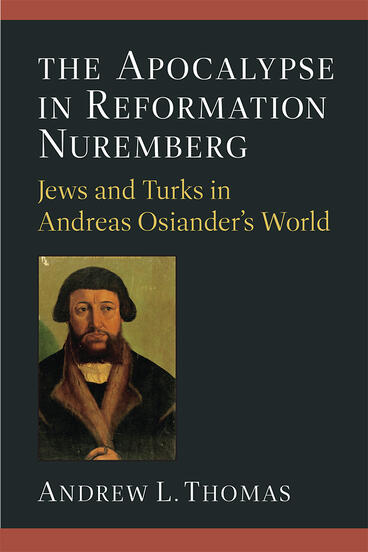The Apocalypse in Reformation Nuremberg
Jews and Turks in Andreas Osiander's World
Illuminates the impact of Jews and Turks on the life and work of influential reformer Andreas Osiander
Description
Lutheran preacher and theologian Andreas Osiander (1498–1552) played a critical role in spreading the Lutheran Reformation in sixteenth-century Nuremberg. Besides being the most influential ecclesiastical leader in a prominent German city, Osiander was also a well-known scholar of Hebrew. He composed what is considered to be the first printed treatise written by a Christian defending Jews against blood libel. Despite Osiander’s importance, however, he remains surprisingly understudied. The Apocalypse in Reformation Nuremberg: Jews and Turks in Andreas Osiander’s World is the first book in any language to concentrate on his attitudes toward both Jews and Turks, and it does so within the dynamic interplay between his apocalyptic thought and lived reality in shaping Lutheran identity. Likewise, it presents the first published English translation of Osiander’s famous treatise on blood libel. Osiander’s writings on Jews and Turks that shaped Lutherans’ identity from cradle to grave in Nuremberg also provide a valuable mirror to reflect on the historical antecedents to modern antisemitism and Islamophobia and thus elucidate how the related stereotypes and prejudices are both perpetuated and overcome.
Andrew L. Thomas is Associate Professor of History at Salem College.
Reviews
“By engaging with a lesser-known figure of the Reformation, Thomas adds nuance to the intellectual history of the period, both in terms of Osiander’s complex relation to Jewish tradition and in the intersection of Turkish and Jewish themes.”
- Todd Kontje
—Todd Kontje, University of California, San Diego
“Based on a careful and extensive reading of primary and secondary sources, Apocalypse in Reformation Nuremberg is a solid work of scholarship with clear organization and a strong argument. Given the few scholarly works on Osiander, this book is a welcome addition to the field.”
- Ronnie Po-chia Hsia
—Ronnie Po-chia Hsia, Penn State University

